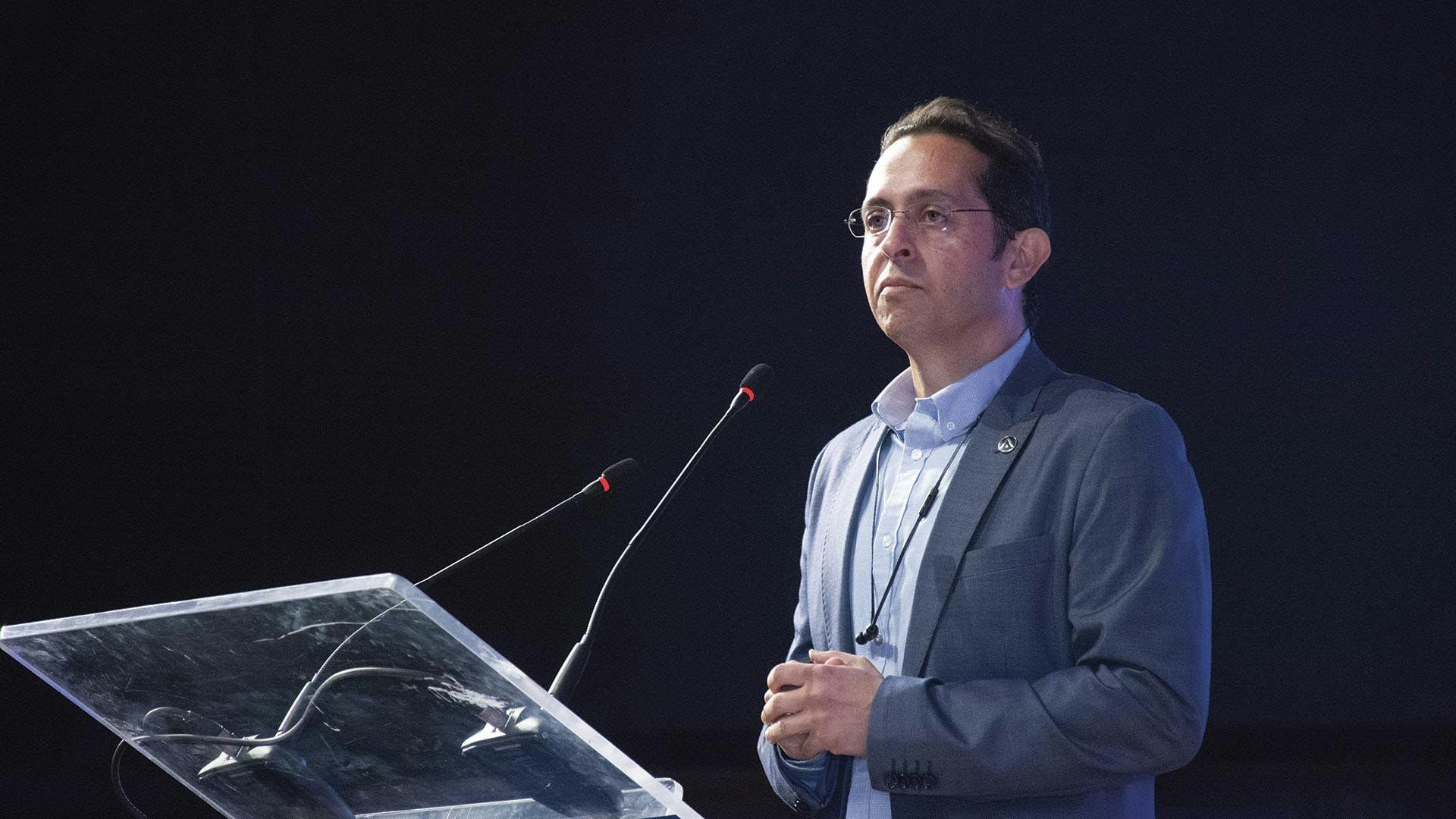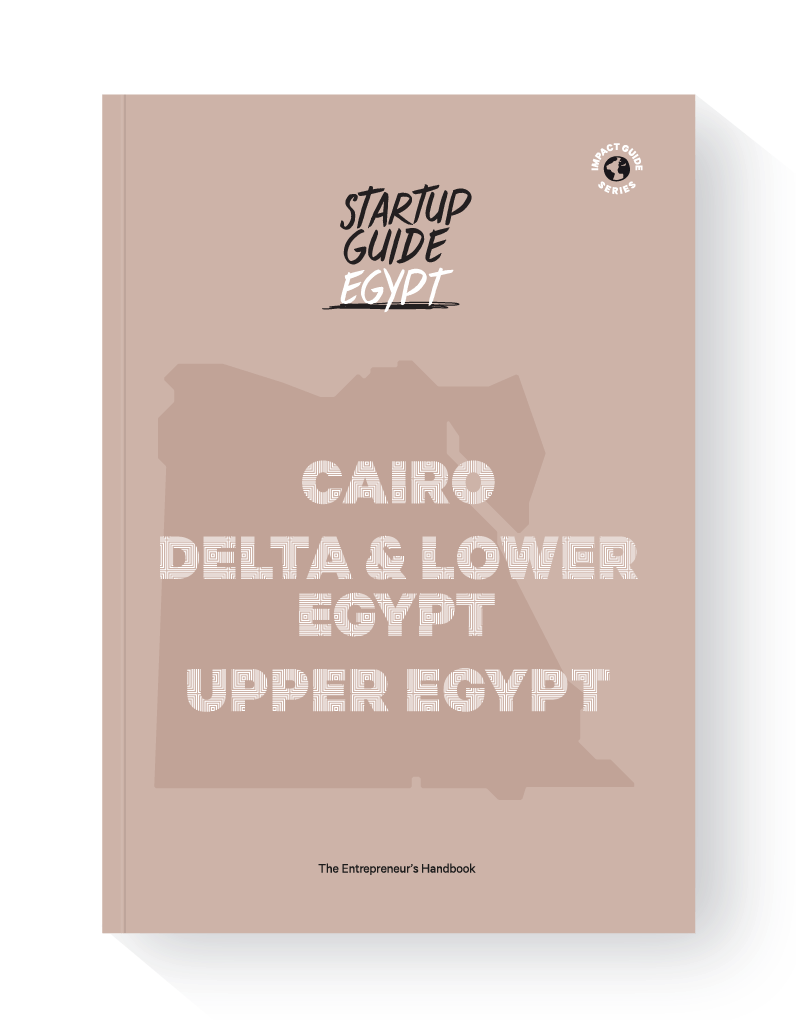Meet Tarek El-Kady, the man behind Egypt’s Techne Summit
orn and raised in Alexandria, Tarek El-Kady is a serial entrepreneur and an angel investor focused on connecting tech-enabled startup ecosystems operating along the coast of the Mediterranean Sea.
With over fifteen years in the event-management industry, Tarek launched Techne in 2015. The company organizes two annual summits – one in Alexandria, Egypt and a second in Dubrovnik, Croatia – and a series of “drift” events in fourteen governorates along the Egyptian Delta.
Tarek shares his experience of Alexandria’s startup ecosystem and his insights into what makes a successful business event.
Events are based on human interactions and matchmaking relevant people.
How did you become interested in event management?
Events usually bring all the parts of marketing and advertising together, from the initial planning part to the marketing and communication. We’ve been doing marketing and advertising since the early 2000s and then six years down the road we started doing events because we consolidated all the marketing and communications efforts with the people – it connects people with each other. Events are based on human interactions and matchmaking relevant people.
Techne started as an event commissioned by the governor of Alexandria to support technology in general and then we shifted the focus to tech-enabled startups by connecting them and giving them access to markets, capital and relevant resources. Techne was the first event that we decided to take ownership of. We split it into a separate company and created initiatives for connecting different ecosystems around the Mediterranean by supporting tech and tech-enabled startups.
What were your early struggles and how did you overcome them?
We’re operating in a small city, not in the capital. Most of the people in Alexandria leave to go to the capital, which happens in smaller cities all over the world. Eventually, they decide to abandon their own countries. What we wanted to do is connect the smaller city of Alexandria to the other smaller cities on the Mediterranean.
The main challenge that we had was that it was very hard to raise funds. When we said we’re throwing our first event, we’re getting 50 speakers coming from 20 countries and we want to gather a thousand people together, no one believed us; no one believed in what we wanted to do.
It wasn’t easy, but then with our first event that had 900 people and 48 speakers, which was close enough to what we wanted, people started noticing us and looking at what we’re doing.
Through the years, we have managed to grow the event to attract more than 13,000 people. The Alexandria event in November 2020 was a hybrid edition that hosted 250 speakers, 180 investors and 650 startups. The event grew significantly by getting all the people who believed in decentralizing initiatives and connecting Mediterranean cities together.
There were a lot of challenges, but throughout the journey we were able to at least prove that there’s something noticeable about the Mediterranean and about the talent coming out of Alexandria.
We focused on our added value: our content. We tried to get the most relevant content to our audience, we got very good speakers and we invested most of the funds that we had, if not all, in bringing in diverse and relevant expert speakers who would really add value to our content. I think this was what made a big difference.
From the third year, people started realizing that we have something different here in terms of content. Of course we started adding more bells and whistles and added value, but this was the key thing that made a significant difference in what we were doing.
[You may also like: Understanding Egypt’s startup ecosystem]

Tarek El-Kady, Founder of Techne. Photo: Dramatic Media
What was your biggest mistake?
I think maybe the biggest mistake we made was during our first event. We really invested a lot of money and we thought this was going to be a cash cow, that we were going to throw this event and make some money out of it – or at least cover the expenses. But we lost a lot. So, we decided to throw the second event six months later; we didn’t wait a whole year. This was too soon – we didn’t have enough time to plan. We actually ended up losing more money.
I graduated university as an architect. I didn’t study entrepreneurship or know how startup ecosystems operate – I learned that through the journey. Maybe if I had known this a few years earlier, I would have taken some more time in planning and understanding the difference between planning and executing an event for a client and an event that we own.
There’s a lot of business development and fundraising and budgeting that needs to be accounted for ahead of time before actually planning for the event. When we’re doing corporate events, we usually have a budget and we utilize the budget to best meet the needs of the client.
What are the challenges of making this a profitable business?
We started making a profit out of Techne two or three years ago on the event level. On the organizational level, we’re not making any profit yet. We’re breaking even. We usually have different revenue streams – so you have ticketing, sponsorships, exhibitors – and they need to be balanced out, because if you have expensive tickets you won't get a lot of attendees – so the exhibitors won't have a lot of exposure, and you'll have to compromise on the exhibiting.
In 2020, we did the summit in Dubrovnik virtually. It had around 1,500 attendees, 60 speakers and 70 investors. I think it went well initially, but was still more challenging than running events on the ground. We can’t say that events on the ground are going to stop. We’re going to continue to do them but they’re going to be different.
The post-pandemic challenges are still unclear. We’re slowing down so we can pass this period, and we are trying to maintain the cash flow, cutting down on unnecessary activities that can save us costs.
What was the best decision you took?
Always investing in the right people on the team.
What professional advice would you give people in the early stages of starting up?
My advice is to actually focus on the value proposition and what added value you are giving versus your competition. By identifying that, you need to always get the right team to be able to believe in the values that you’ve set so that they can actually reflect that on every product, service or action that the team is taking.
I think that there’s a lot of talents coming out of Alexandria.
Why did you choose to stay in Alexandria?
I was born and raised in Alexandria – my school was there, my college was there. We have several offices around the region but our head office still remains in Alexandria. I think that there’s a lot of talents coming out of Alexandria. I think the city itself is a place that can foster innovation in a different way. It’s less stressful. You don’t need to commute a lot of hours every day between work and home. There’s traffic, but it’s much less than Cairo, so the team ends up being more productive.
I also think it makes a big difference being by the sea; there’s something that I did not yet decode in the Mediterranean Sea that has this effect on the people. There’s a connection between the team and whatever activities that we’re doing. We’re hosting a lot of people around the Mediterranean in general. You feel connected, even when we do our events in Croatia or in France, you feel there’s a bond. I don’t really understand it, but it’s just something that you feel that you’re connected to.
What pillars do you hire on?
We started getting people who can understand and learn, and who also have a background in at least one or two areas that can add value. Right now, we have 22 people who work both part time and full time. The team can reach up to 80 people in the months before an event.
The first things we look at when hiring are the personal traits, capabilities and the key-result areas that we want out of the position that they are applying for. Even if their technical background is not optimal but they have a space to learn, it could be a match. As long as they are passionate about it, as long as they are proactive and resourceful – these are the things that we look for in the people we’re hiring.

Do you have any personal work habits that you’ve developed over time?
I used to be a night owl, and then eventually I started changing and now I consider myself an early bird. It made a big difference because I used to work in smaller teams, so I was able to finish my work at the end of the day. Now that I’m managing more than one company, I need to start as early as I can to finish what I need to get done so that I have time to support my teams, and this is what inspired me to change.
We always mix what’s urgent and what’s important. My main rule of thumb is to always look at what I need to do in terms of dimensions: the urgency and the importance. Once you are able to clarify these, you’ll be able to understand what needs to be delegated, what needs to be discarded, what needs to happen today and what needs to happen tomorrow.
Where do you take your team out for team building in Alexandria?
Whenever we have a guest or have a team hangout, we go to the White and Blue, a seafood restaurant that is on the premises of the Greek Club, a three-story complex. It has a very nice view of the whole city of Alexandria, you can see all the fishing boats from there, and they have very good seafood too.
A version of this interview is featured in Startup Guide Egypt. Order your copy now for more exclusive interviews and inspiring insights.
Written by Leena ElDeeb.
Repackaged by Hazel Boydell.

